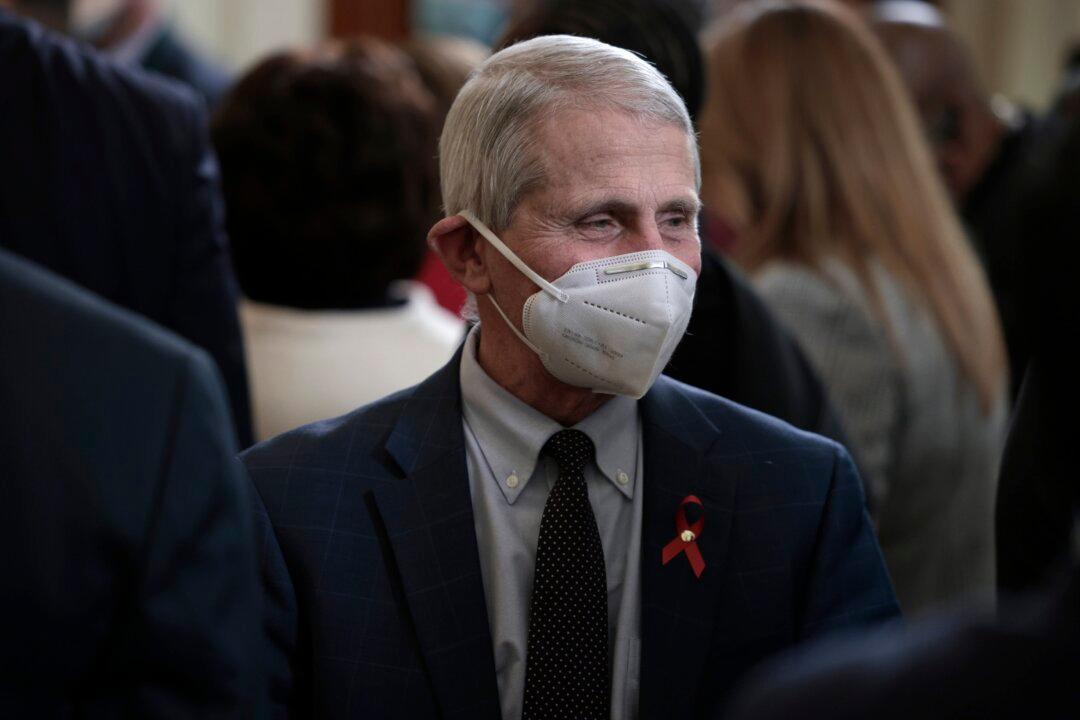Early data indicate that there’s no need for a COVID-19 vaccine booster that specifically targets the Omicron virus variant, Dr. Anthony Fauci said Wednesday, the same day the World Health Organization said vaccines may be less effective against the variant.
“Our booster vaccine regimens work against Omicron. At this point, there is no need for a variant-specific booster,” Fauci, the head of the National Institute of Allergy and Infectious Diseases (NIAID), told a virtual press briefing.





